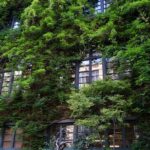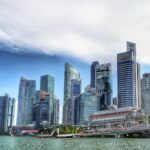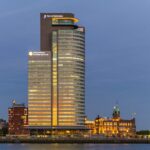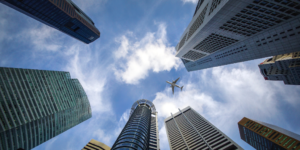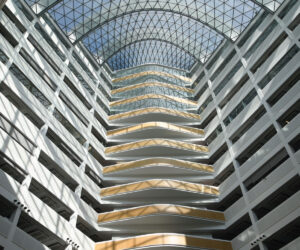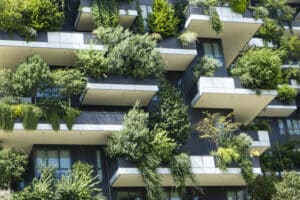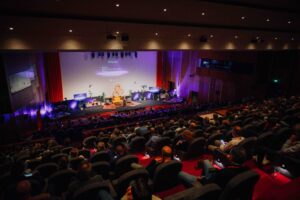
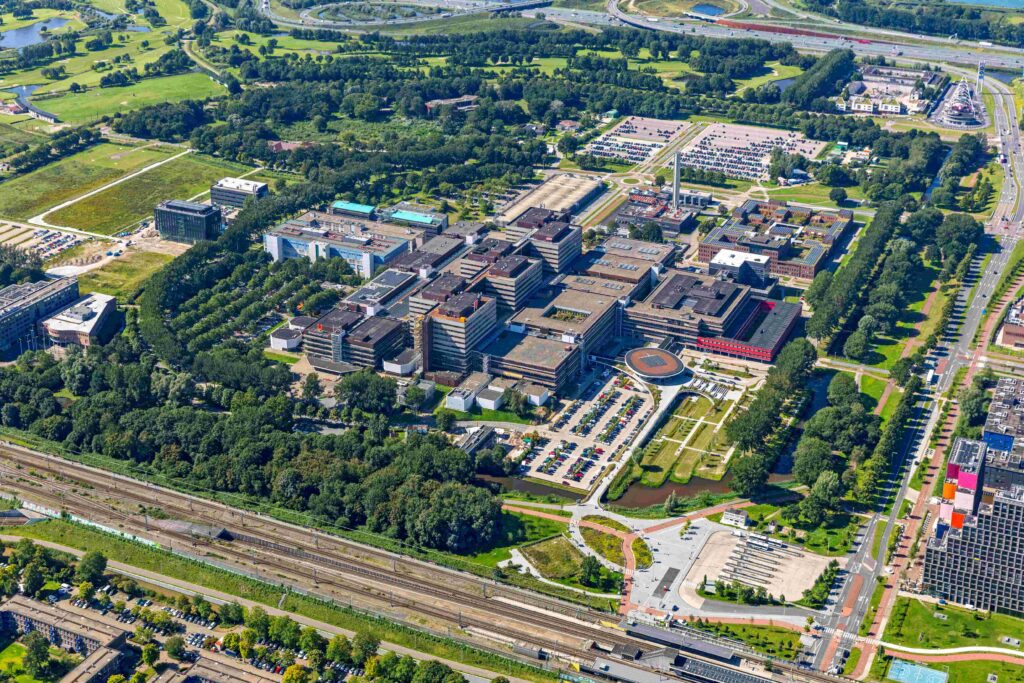
Amsterdam UMC on its way to a sustainable future with an integrated vision of technology
Since 2012, CFP Green Buildings and Amsterdam UMC have been working closely together on an ambitious sustainability programme. This collaboration aims to drastically reduce CO2 and energy consumption at Amsterdam UMC, one of the largest medical facilities in the Netherlands. Robert Lok, head of operations and energy at Amsterdam UMC, plays a crucial role in these efforts.
Amsterdam UMC faces the challenge of transforming a 40-year-old building into an energy-efficient institution. With a floor area of 550,000 square metres, reducing energy consumption is a complex task. The hospital even has its own power plant with 23 technicians continuously at work to provide its power supply. Reducing energy consumption requires a combination of behavioural changes, technological innovations and investments in sustainable infrastructure.
Integrated vision of technology
An integrated vision of technology guides Amsterdam UMC’s sustainability efforts. This includes technological innovations and recognised measures, as well as an energy master plan, which focuses on energy and CO2 savings. This integrated approach outlines a roadmap for the future and serves as a tool to convince management of the need for change. The plan is also guided by external guidelines, such as the municipality oi Amsterdam’ Energy Agenda, the Recognised Energy Efficiency Measures List (EML) and the Green Deal for Sustainable Healthcare.
CFP Green Buildings plays a crucial role in gaining insights that help Amsterdam UMC optimise its energy efficiency. Through detailed reporting and analysis, CFP provides valuable information on energy consumption, production and efficiency. This enables Amsterdam UMC to make targeted decisions and monitor the progress of sustainability initiatives. Robert explains: “As a first step, we wanted to know where we stood in terms of what we were generating and consuming, and we now have a clear view of that. A kind of baseline measurement. This gives you a tremendous amount of insight. If you know what you are doing, you can gain insight into your current programmes and map what certain improvements could yield. We have detailed everything and we now understand where the difficulties are and what we consume and generate. We can now make a forecast of what the next few years should look like. We have used this information to flesh out the Energy Master Plan.”
Recognised Energy Efficiency Measures List (EML)
The roadmap sets the course for the coming years. The Recognised Energy Efficiency Measures List (EML) is also a key tool in this journey, Robert explains. “We have now implemented a number of measures from the EML. We have installed energy-efficient pumps and properly adjusted control cabinets, and thanks to a LED lighting programme, 70% of our lighting is now LED. We also have a new insulation programme ready, and all pipes will be insulated this year. Because if we want to switch to low-temperature heating in the future, insulation is very important. Especially in a 40-year-old building.”
“I really enjoy seeing that people are energised by the measures being taken. I see that people are pleased when new measures are completed. Because it tells them that we are investing in the building and that work is being done to make it more sustainable.”
– Robert Lok, Head of Power Plant and Technical Operations at Amsterdam UMC

Green Teams for Healthcare
Another important part of Amsterdam UMC’s sustainability approach are the Green Teams for Healthcare, consisting of enthusiastic employees who proactively develop initiatives to save energy. Among other things, these teams focus on optimising the use of building systems, look for ways to reduce waste and post videos to promote environmentally aware behaviour.
Think tank for innovative measures
Besides reducing energy consumption, Amsterdam UMC also aims to reduce its dependence on fossil fuels. Robert: “We are already making extensive use of free cooling and cooling towers, but currently we also still generate energy from gas. But our gas bill is high and the city of Amsterdam ultimately wants to become gas-free. So in addition to all the work we do, we also look at new solutions and how we can make things smarter. To this end, we have set up a think tank, of which CFP is also part. All new innovations are discussed there. Because if we want to generate less electricity in the future, we need to look at other systems and techniques, such as thermal storage and ground source cooling. We also need to look at how we can make use of the local environment, such as through district heating, extracting heat/cold from water bodies or extracting heat from data centres. Because making a complex with a floor area of 550,000 m² gas-free is a big change.”
Priorities for the coming years
For Robert and his team, the priorities for the coming years are to further refine the integrated vision of technology, implement energy-saving measures according to the EML, and aim for a gradual transition to renewable energy sources. The ultimate goal is to transform Amsterdam UMC into a model of energy efficiency and sustainability while keeping the focus on providing high-quality care to patients, without harming the planet.
